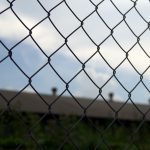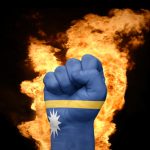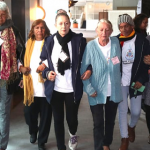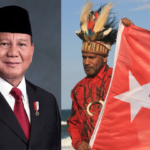Sovereign Citizens and Other Far-Right Extremists Pose a Far Greater Threat Than Muslim Teens
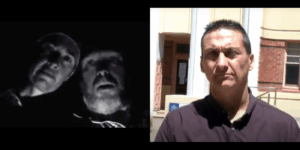
Australian law enforcement agencies have long targeted the Muslim community, conducting countless raids on homes of Muslim Australians over the years with little or no result, subjecting Muslims to high levels of monitoring and surveillance and, on occasion, pro-actively encouraging the radicalisation of Muslim youths with a view to entrapping and arresting them for offences they would likely never have committed had they not been encouraged by law enforcement agencies to do so.
In one operation, over 800 specially trained officers conducted supposed ‘anti-terrorism raids’ on 25 homes across Sydney and Brisbane. The raids saw the heavily-armed officers pulling terrified women and children from their beds in the middle of the night, in what can only be described as ‘pre-emptive raids’ on dozens of innocent people of the Muslim faith. Only one person was charged out of those wholesale raids.
Of particular concern is the fact that Australia has long had laws in place which provide immunity to law enforcement officers for criminal acts they commit during terrorism raids and, to top it all off, the innocent victims of these traumatic operations can be criminally prosecuted for speaking out about their ordeals.
Under this umbrella of immunity and diminished transparency, law enforcement agents have arrested Muslim youths for what can only be described as ‘thought crimes’, only to later release them with no criminal charges.
Differential treatment
But the situation with far-right extremists has long been very different. Such persons have long escaped the same level of monitoring, scrutiny and targeting as members of the Muslim community, despite report after report finding that such extremism poses a far greater threat than anything posed by the Muslim community.
In fact, there are many examples of far-right extremists escaping charges altogether or being charged with only minor offences over acts which fall within the legal definition of terrorism.
Take the example of Phillip Galea, a member of the far-right wing group Reclaim Australia. Police executed a search warrant at Mr Galea’s home just days before he planned to attend an anti-Muslim, anti-immigration protest in Melbourne.
Mr Galea had made numerous inciteful and threatening statements against the Muslim community on social media, and police were concerned he might act upon them. During the raid, police found Mr Galea to be in possession of bomb-making guides, five tasers, a jar of mercury, bomb making equipment and prohibited weapons.
But rather than charging him with planning or preparing for a terrorist act (which carries up to life in prison) and leaving the veracity of the allegations for the court to decide, police instead charged him with the relatively minor offences of possessing a prohibited weapon and possessing a precursor substance, which in Victoria carry maximum penalties of 2 and 5 years in prison respectively.
Mr Galea pleaded guilty to the charges and was sentenced to just one month in prison and ordered to pay a fine of $5000. During his sentencing hearing, the presiding Magistrate remarked that the items were likely in Mr Galea’s possession “for an aggressive attack on others in the community”.
Unsurprisingly, shortly after his release from custody, Mr Galea upped the anti and was ultimately re-arrested and charged with terrorism offences. But the question remains: should he not have been charged with a terrorism-related offence in the first place?
Indeed, there is a strong argument Mr Galea would have been charged under federal terrorism laws rather than with minor state offence if he had been of the Muslim faith.
In fact, a Muslim youth who was also found to be in possession of bomb-making guides and parts capable of making explosives when his Melbourne home was raided, was charged with the offence of planning or preparing for a terrorist act, an offence which, again, carries a maximum penalty of life in prison.
Mr Galea was 31 years old when arrested over the bomb making guides and parts. He had a criminal history and had been making repeated threats over social media. The Muslim youth was 17 years old and did not have a criminal history.
There are several other examples where right wing extremists are treated very differently to Muslim youths over similar facts.
Right wing extremism
Right wing extremism comes in many forms.
One of those forms is the sovereign citizen movement, which was developed by right wing extremists in the United States in the late 1960s and 1970s before making its way over to other nations, including ours in the late 1990s – expanding significantly during COVID.
Sovereign citizens generally reject the authority of the law and government, preferring to rely on misinterpretations of common and/or maritime law, as well as misconstrued parts of legislation and other legal principles and instruments.
The movement falls within the realm of pseudo-law, and its adherents typically claim to believe that even though they reside within a nation, they are separate or ‘sovereign’ from it, which exempts them from many rules of society such as paying taxes, having to obtain licences and permits, and complying with laws. It is important to note there is no reported case of a sovereign citizen argument succeeding inside the courtroom.
The anti-government/authority views of sovereign citizens can lead to tensions when confronted by agents of the state, on occasions escalating into violence and even leading to death.
And while there have been moves to identify and monitor a limited number of ‘fixated persons’ in the community, those efforts have often been politically motivate – focusing on individuals who have legitimate reasons to express dissent rather than those who pose a real danger to society.
Recent events both in Australia and abroad suggest there are good reasons for law enforcement agencies to shift resources from the monitoring and targeting of Muslim members of the community and towards sovereign citizens and other right-wing extremists.
Some such events include:
Weiambilla
On 12 December 2022 at a property in the Queensland town of Wieambilla, brothers Gareth and Nathaniel Train and Gareth’s wife, Stacey Train, shot and killed two Queensland police officers, Matthew Arnold and Rachel McCrow, and a neighbour Alan Dare, following a protracted standoff after the officers attended the property to conduct a welfare check.
The assailants held strong anti-government/authority beliefs, consistent with those of sovereign citizens, and were not on the police radar despite regularly posting videos on social media threatening to cause harm to law enforcement agents who dared to visit their property.
Questions were asked in the wake of the tragedy, including why police did not treat the threat more seriously when it was clear the occupants were armed, dangerous and repeatedly threatening harm.
Porepunkah
On the morning of 26 August 2025, police sought to execute a search warrant over suspicions of historical sexual offences against 56-year old self-proclaimed sovereign citizen Dezi Bird Freeman at his residence in the Victorian town of Porepunkah, when Mr Freeman allegedly opened fire on attending police officers, killing 59-year old detective leading senior constable Neal Thompson and 35-year old senior constable Vadim De Waart.
Mr Freeman held extreme right-wing views, referring to police as “terrorist thugs” and “corrupt filth”, spruiking right-wing conspiracy theories and attempting to bring a private criminal prosecution against then Victorian Premier Daniel Andrews.
Despite his publicly expressed radical views and threats, law enforcement agencies did not see the need to closely monitor Mr Freeman or have a stronger police presence when attending his residence. This is in spite of the Wieambilla tragedy and what many have warned is ‘the real terrorism threat’ that signifies proponents of the sovereign citizen movement.
Christchurch
Then there is, of course, the case of right-wing extremist Brentan Tarrant, who on 15 March 2019 massacred 49 defenceless people, including children, during Friday prayers at a Mosque in Christchurch, New Zealand.
The then 34-year old from Grafton in New South Wales had long expressed extreme Islamophobic and anti-immigration views online, publishing a 73-page manifesto in which he spewed hatred against Muslims and ‘non-Whites’.
Tarrant is among a number of other right-wing extremists including Elliot Rodger, Stewart Shodes, Richard Spencer and Rinaldo Nazzaro who have served as inspiration for countless violent attacks on innocent civilians in recent years.
In fact, Tarrant was the inspiration behind a thwarted plan by a right-wing extremist teen in March 2025 to perpetrate mass murder against members of the Muslim community, with the teen making numerous threats including to “Christchurch 2.0 this joint” when referring to a newly opened Mosque in Sydney’s south-west.
The incident is just part of the 580% rise in Islamophobic attacks in recent years, largely attributable to those professing right-wing, anti-immigration views.
Other fatal incidents involving sovereign citizens
While some may see those who profess sovereign citizen views as misguided proponents of pseudo laws who are motivated by self-interest – primarily evading the responsibilities of civil society – it is important to bear in mind there are many examples of these supposed ‘oracles of legal knowledge’ escalating their anti-government views to the point where it manifests in lethal violence.
A few (of many) notable instances of violence by right-wing extremists that professed sovereign citizen views are:
- 1995 Oklahoma bombing
- 2003 Abbeville standoff
- 2009 murder of George Tiller
- 2010 shooting of West Memphis police officers
- 2013 LAX shooting
- 2014 Bundy standoff
- 2014 Las Vegas shooting
- 2016 killing of Korryn Gaines
- 2016 Malheur wildlife refuse occupation
- 2016 shooting of Baton Rouge police officers
- 2018 Nashville waffle house shooting
- 2021 Wakefield standoff
- 2021 Waukesha Christmas parade shooting
Police should be focusing on sovereign citizens and other right-wing extremists
The shootings at Wieambilla and Porepunkah in Australia and the many violent – sometimes deadly – incidents for which sovereign citizens and other right-wing extremists are responsible both here and abroad lend weight to the argument that law enforcement agencies should shift focus from the Islamic community in general, and Muslim youths in particular, which the lack of violent let alone fatal incidents suggest pose a minimal threat, and towards right wing extremism, who pose a significant and growing danger not only to law enforcement and government agents, but to the safety of the community as a whole.

